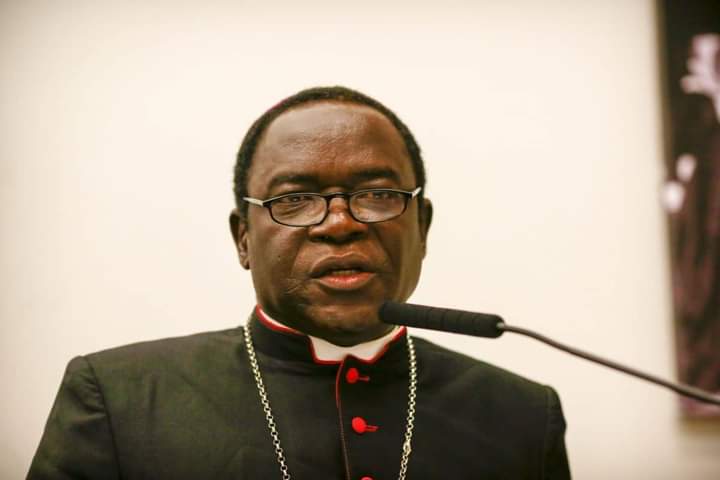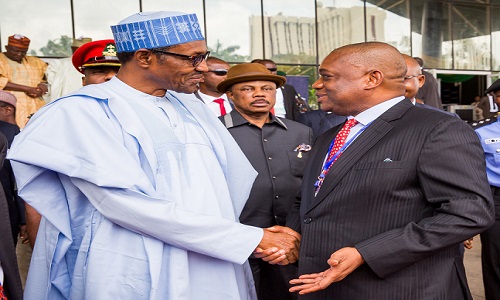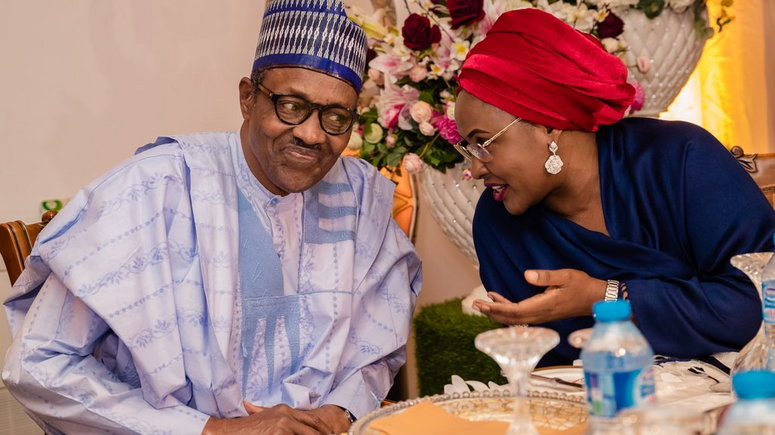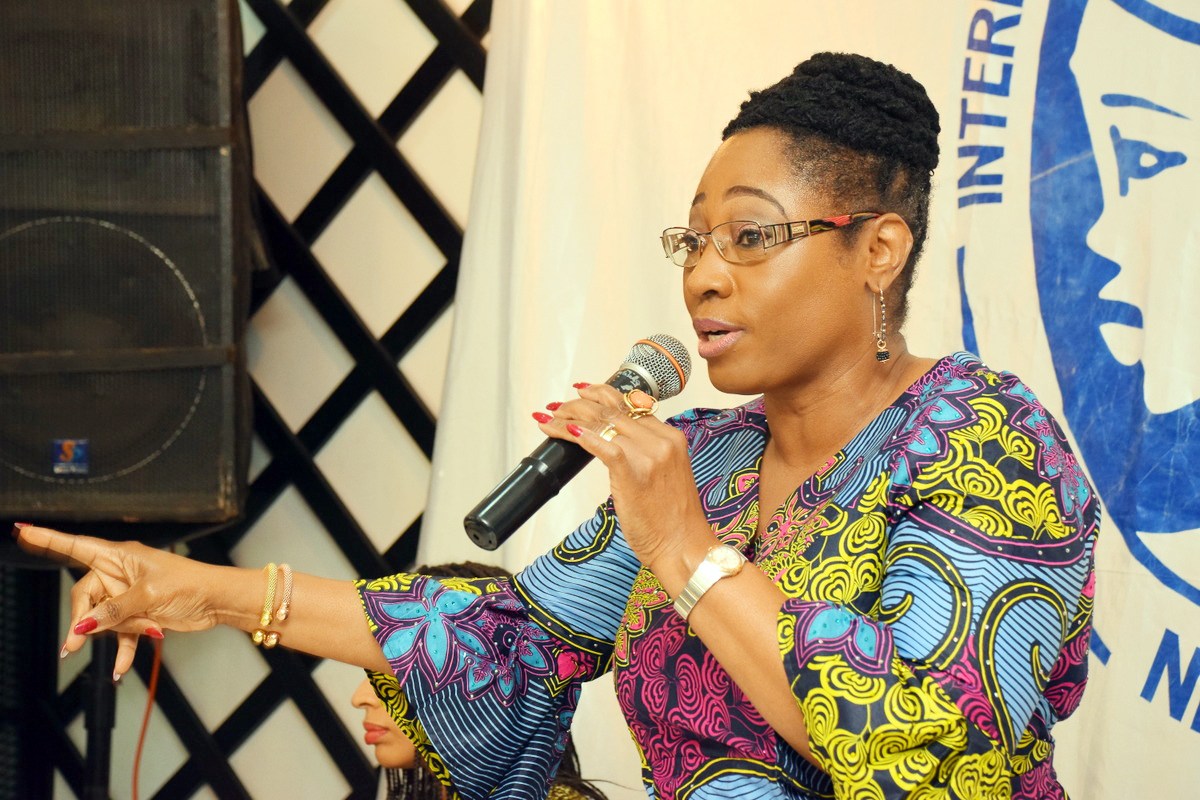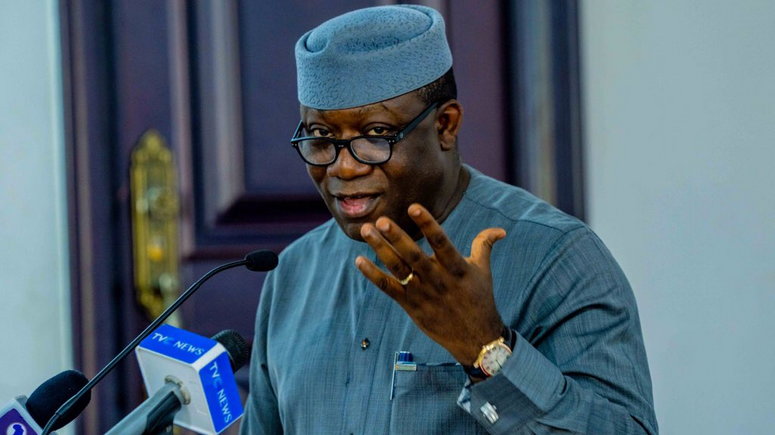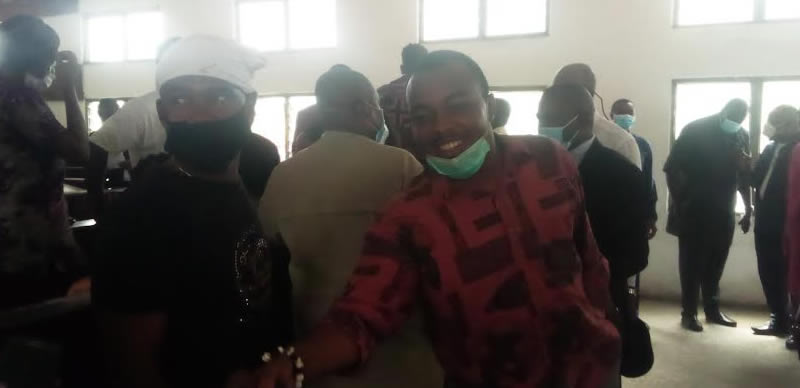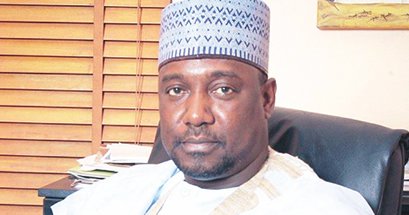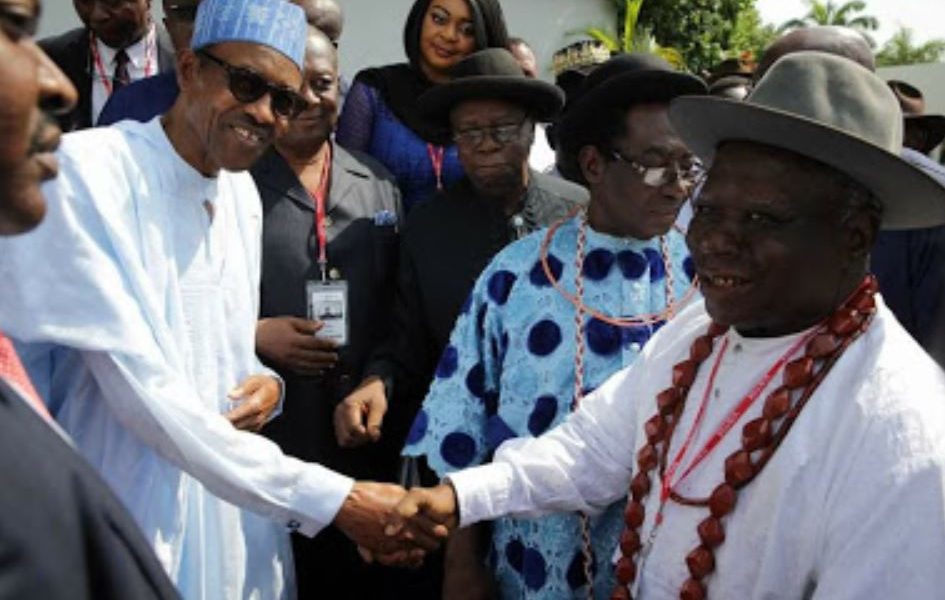The Catholic Bishop of Sokoto Diocese, Bishop Matthew Kukah has said the role of prophets brings discomfort to those in power when the government is suffering the crisis of legitimacy.
TheNewsGuru.com (TNG) reports Bishop Kukah stated this in his sermon at the silver jubilee of Bishop Stephen Dami Mamza.
The silver jubilee of Bishop Mamza was held on Tuesday at St. Theresa’s Cathedral, Yola in Adamawa State.
Bishop Kukah said friction arises with politicians only when they do not do what they promised to do during their campaigns.
He said: “Friction arises only when politicians do not do what they promised to do during their campaigns, when they turn public trust into a family tustfund, when they watch the faces of their people scarred by poverty and squalor and look the other way.
“How do we create a balance between our prophetic role and the discomfort it often brings to those in power? It is significant to note that this conflict often occurs when a government is suffering the crisis of legitimacy.
“Every honest leader must cross the threshold of prejudice. It is the only way we can build a complicated society like Nigeria. Boko Haram, banditry, kidnapping and all the negative things that threaten to drown our country are evidence of how the consequences of our becoming prisoners to prejudice.
“For us in Nigeria, celebrations are a great part of the tapestry of our lives. In 2011, we entered the new year with a staggering announcement that out of over 150 countries that were surveyed, Nigerians were the happiest people in the world. In 2019, we fell to 85th position and in January this year, we are ranked 116 out of 154 countries. This is why, we must ask the question whether our glory is about to depart.
“The pain and suffering that Boko Haram has inflicted on our country will scar our society for life. It has taken us to the bottom of the hill”.
Read Bishop Kukah’s sermon at the silver jubilee of Bishop Mamza below:
SERMON AT THE SILVER JUBILEE OF THE ORDINATION OF BISHOP STEPHEN DAMI MAMZA BY BISHOP MATTHEW HASSAN KUKAH, BISHOP OF SOKOTO DIOCESE ON APRIL 13th 2021 AT ST. THERESA’S CATHEDRAL, YOLA
1: This is a normal day for many people but for Stephen Dami Mamza, it is a day of great memories. For us in Nigeria, celebrations are a great part of the tapestry of our lives. In 2011, we entered the new year with a staggering announcement that out of over 150 countries that were surveyed, Nigerians were the happiest people in the world. In 2019, we fell to 85th position and in January this year, we are ranked 116 out of 154 countries. This is why, we must ask the question whether our glory is about to depart.
2: Notwithstanding all of this, we remain notoriously optimistic against all the most negative internal and external predictions against us. We dance when we are born. We dance when we are alive and when we die, the celebrations still continue. Today however, is special because, priests do not gather to celebrate achievements. We have not like the public officers, who despite using our resources still claim what they have spent out money on, as achievement. A priest cannot line up those he has administered the sacraments to as trophies of his achievements, nor can a bishop on a day like this say, all those whom I have ordained, please stand up for recognition.
“When I feed the poor, they call me a saint. When I ask why there is poverty, they say I am a Communist”.
3: Today is one of those days in which we can only say, ‘Not to us Lord, not to us but to your name must glory be given’ (Ps. 115: 1). It is a day when we must ask, ‘how can I repay the Lord for his goodness to me?’ (Ps. 116:12) It is a day for us to be reminded that there is nothing that we have that has not been given to us (1 Cor. 4:7). Indeed, today is a day that with humility, we must bow and acknowledge God our creator who called us. We must acknowledge all those great men and women, from our immediate parents, siblings and extended family, to the larger family of the body of Christ, our teachers. Those great catechists who made tremendous sacrifices, those who formed us in the seminaries, those great Elis in our lives who directly or indirectly, helped us to process the language of God into human form. May God bless them.
4: For us, it is a day to ask how we heard the voice. It would be unthinkable for Bishop Mamza to have imagined when he started that he would be here to celebrate ten years of his priestly ordination seated on a throne in the cathedral. But this is the Lord’s doing and it is wonderful for us to see. The great thing is that it is the priesthood that is a vocation. The bishopric is not a vocation, nor should it be an aspiration because it is an office. And because it is an office, it can only be given by appointment. The call to be a priest is internal, private, intuitive, often unclear whereas an office is publicly declared. You recall that on his ordination day as bishop, we considered the announcement to be just hear say until that document was read out publicly to us.
5: Bishop Stephen Mamza is lucky that he came into the priesthood very late in the day. Some of us were not so lucky. In my case, I was the first to be ordained a priest among the Ikulu people, my little ethnic group from Southern Kaduna. Three little incidents still linger whenever I think of my ordination. One was a young man who was so disappointed on the day of my first Mass, so much so that he left the Church in anger because I still had a black skin and nothing had changed even after my ordination. Another was an ECWA cousin who insisted he must receive holy communion because it was his brother who was distributing the communion. He said he was not asking for the one distributed by the white man or a Fulani man. Less than two months ago, he called me to greet me. He said he wanted to say how proud he was of what I had become because he had been at my ordination and that all he still remembers was that it was the first time he drank Fanta in his life! So, on this day, different folks have different strokes.
6: We now need to pause and ask ourselves what we were called to do. In other words, what is a Catholic priest called to do? It is understandable that for us all, the priesthood is being seen as a sign of achievement: our parents have sobriquets as, Maman Fada or Baban Fada, yan uwan Fada, even abokanin Fada. The struggle for the appropriation of identity is not peculiar to us. After all, imagine the shock of those around when Jesus was told, ‘Your mother and your brothers are outside looking for you.’ It was natural for them to expect attention. It was expected that Jesus would naturally stop everything to attend to family matters. Recall the answer of Jesus: ‘My mother, sisters my brothers are those who do the will of God’ (Mt. 12: 48). This is a measure of the radical turn that a priest is called upon to make. So, when our family members are disappointed by the fact that they are not getting recognition for being related to us, it is understandable.
7: This is not the place for us to indulge in definitions or analysis of the role and place of the clerical identity. Our brief attention should focus not so much on people’s expectations but on what we think of ourselves. The priest remains primarily the vessel for the transfer of God’s blessings to His people. To that extent, the priest is a mediator, an intercessor between God and His people. It is expected therefore that the priest must be in constant contact with God through prayer and, as Pope Francis said, ‘have the smell of his sheep.’ In his letter to the priests of the Diocese of Rome, His Holiness noted that: As priests, sons and members of a priestly people, it is up to us to take responsibility for the future and to plan for it as brothers. Let us place in the wounded hands of the Lord, as a holy offering, our own weakness, the weakness of our people and that of all humanity. It is the Lord who transforms us, who treats us like bread, taking our life into his hands, blessing us, breaking and sharing us, and giving us to his people.
8: The notion of the smell of the sheep raises the question as to the definition of the boundaries of engagement between the social and the spiritual. In other words, does the priest have the luxury of looking at the world from the safety of his sacristy, occassionally merely sprinkling holy water and incense as his congregation trudges on in pursuit of their daily lives? This has been a subject of debate but the good news is that this debate is not new. Jesus was confronted with these challenges in the course of his daily life. He provided answers and directives that shook the foundation of the faith of His listeners. For example, ‘Can a man divorce his wife for any reason whatsoever?’ (Mt. 19:3) ‘Are we to pay taxes to Caesar or not?’ (Mt. 22:15). ‘How should we pray?’ (Lk. 11:1). ‘Who is my neighbour?’ (Lk. 10:25).
9: The most beautiful thing about Christianity is that it is not a religion that solely depends on scriptural texts. We are Christians because of the incarnation, namely, that God became man through Jesus Christ and Jesus taught us how to follow in His footsteps. In the face of uncertainty, He already told us, Do not let your hearts be troubled, trust in God and trust in me (Jn. 14:1). When some of His followers who focused on the strict application of the Law asked which was the greatest commandment, He told them to their utter shock that there were only two commandments: Love of God and neighbour (MT. 22: 36, Mk. 12:30).
10: Perhaps, like the curious lawyer we might be curious and ask, and ‘who is my neighbour?’ Jesus answered that question with the story of the good Samaritan. That story challenges us and it is at the heart of Christianity. It summarises the teachings encapsulated in the ten commandments and beatitudes. Jesus restates that in the final judgment, this will be the basis for our entering heaven or hell. Yet, it is in the course of helping society understand and appreciate these teachings that we as priests are often called, controversial.
11: The late Cardinal Helder Camara of Recife, Brazil, was a man who took the teachings of Jesus to heart and sought to put them into practice as much as he could. He was called, ‘Bishop of the slums’ because of his care for the poor. He was often in conflict with the authorities at the time he was a pastor in Recife. Right wing governments believed that anyone who questioned the system was a Communist agitator. In his most memorable quote, he said: When I feed the poor, they call me a saint. When I ask why there is poverty, they say I am a Communist. This is the dilemma of every priest today. How do we create a balance between our prophetic role and the discomfort it often brings to those in power? It is significant to note that this conflict often occurs when a government is suffering the crisis of legitimacy.
12: Yesterday, some of us were lucky to be at the great event that happened at Sangeri-Margi, here in the state capital, Yola. In an unprecedented move, Bishop Mamza embarked on a ground breaking initiative that has seen the provision of 86 housing units for hundreds of families who had been living in his cathedral since 2014. I had the rare honour of visiting him and seeing the internally displaced in the cathedral. I recall speaking to one of the Muslims around the cathedral who said to me to this effect: It is quite ironic, how suffering and persecution has taught me a great lesson about our Christian brothers. I have never had much contact with Christians beyond seeing them, but Boko Haram brought me to the Cathedral where we came to take refuge. No one has asked me about my religion here. It is most strange that I am running away from a fire lit by Boko Haram who say they are Muslims and now being accommodated by Christians who have been presented as our enemies and unbelievers!
13: The pain and suffering that Boko Haram has inflicted on our country will scar our society for life. It has taken us to be bottom of the hill. When I visited Yola in the course of my work with the American University, I witnessed the resilience of individuals. Someone told me that if you lived in this town and did not have refugees in your home, then it was a sign that you were a wicked man. The people of Adamawa and the entire north-east deserve our commendation. People like Bishop Mamza have made believing in the values of Christianity very easy. It is our hope and our prayers that what Bishop Mamza has done will be emulated by our Muslim brothers. Although the bishop himself said, the housing estate, clinic, bore hole and classrooms were built by different agencies, still, it is a measure of the values that we share as a people that the bishop decided to use the resources of the Diocese of Yola to construct a Mosque for the displaced Muslims. Given that in northern Nigeria, Christians are being openly discriminated against, denied lands for places of worship, their churches destroyed with no compensation, all we can do is hope that our Muslim brothers will light their candles from what Bishop Mamza has done so that indeed, our dialogue will no longer just be photographs and grand speeches, but real, concrete, life changing engagements. I am looking forward to the day a Muslim president, traditional ruler, senator, imam, businessman will lay the foundation for the building of a church for Christians.
14: Finally, my dear brothers and sisters, let us congratulate our brother who has done and continues to do great things even at a very young age. He is 25 years a priest today and only ten years a bishop. As the Chairman of the Christian Association of Nigeria, CAN, Adamawa State Chapter, he has created a fantastic working relationship with the State without compromising the integrity of his office. When politicians do what they have sworn to do, even in their imperfections, they can count on our support and prayers. Friction arises only when politicians do not do what they promised to do during their campaigns, when they turn public trust into a family tustfund, when they watch the faces of their people scarred by poverty and squalor and look the other way.
15: By using church funds to build a mosque, Bishop Mamza has acted quite scandalously in the eyes of some of his faithful. But every sincere and honest leader must scandalise his own constituency who, often imprisoned by ignorance, see public office as the turn of their kinsmen and women (whether by faith or ethnicity), to eat. However, Christianity is a ‘scandalous’ religion. Jesus scandalised the people when he befriended and ate with sinners, prostitutes and tax collectors (Mt. 9:10ff, Mk, 2:13ff). It was scandalous for Him to allow himself to be killed in the most humiliating way of the cross. Every honest leader must cross the threshold of prejudice. It is the only way we can build a complicated society like Nigeria. Boko Haram, banditry, kidnapping and all the negative things that threaten to drown our country are evidence of how the consequences of our becoming prisoners to prejudice.
16: As the Prophet Isaiah said in our first reading: ‘We sing the praise of the Lord’s goodness and his marvelous deeds.’ We join the psalmist in blessing His name forever. We know and we believe that if we knock, the door will be opened and if we ask in faith we shall receive. May the Lord who knows our hearts and our thoughts, who knows what we need to do His will, fulfil His promises of making all things new through us (Rev. 21: 5). Amen.
